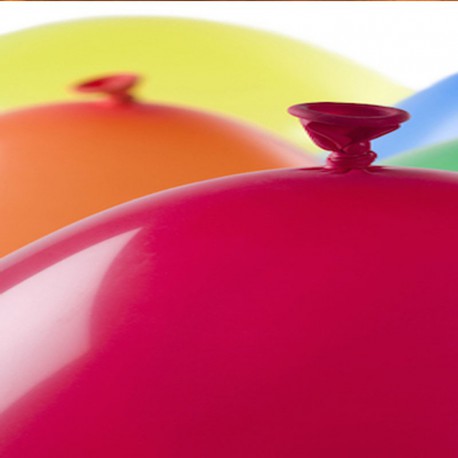 View larger
View larger
Balloon Rockets
New activity
Patrons use balloons, fishing line, and straws to learn about thrust and aerodynamics! You don't need to be a "rocket scientist" to facilitate this activity, but your patrons will sure feel like one!
Open Activity
How-to Video
Teacher's Guide
Provides classroom connections, key concepts, connections to science standards, and additional resources.
Family Take-home Activity
A take-home that can be sent with patrons that wish to do STEM activities at home. These at-home activities cover similar topic areas as the associated activity and could be handed out at the conclusion of a program or left on a circulation desk for patrons to take home.
-
Rating
-
Participants Enjoyed the ActivityParticipants Learned from This ActivityActivity Instructions Were Clear and Easy to FollowWould Recommend
Related Programming Resources
| Hints for uses in your library |
This program is very simple, but if you have children with a latex allergy, you will need latex-free balloons. When doing this program with blind or visually impaired kids, there are several options. Before you begin, if you have a variety of colored balloons, let them choose. Every child, regardless of disability, will likely have a favorite color. Some may want to blow up their balloon, while others may want to only let it go. You will likely need to tape the balloon onto the straw, but you can give the child a choice of how they want it taped. Also ask them in what direction they want to be from the “planet” (aka the person holding the other end of the string). They may want to be above, straight across, below, or any other direction from the “planet.” In the end it’s all about having fun (and seeing if your rocket makes it or flies off into space)!
By Lisa Hellman Wolfner Talking Book and Braille Library Lisa.Hellman@sos.mo.gov |
| Related Links |
Websites:
Rocket Lesson Plans from NASA What Is a Heavy Lift Launch Vehicle? Game: Rocket Builder NASA's Sounding Rockets Rocketry Bookmark Images: NASA Rocketry Image Gallery NASA Launches Rocket and Spacecraft Propulsion Videos: How NASA, SpaceX, and Blue Origin's Monster Rockets compare NISE Network: Stomp Rockets Activity Training Video NISE Network: Stomp Rockets Content Training Video Space Shuttle Atlantis Launch Space Launch System Scale and Power Expedition 31 Crew Launch NISE Network: Stomp Rockets Content Training Video |
| Originating Source | Children's Museum of Houston |
| Related Books [Suggest a book] |
Zoom, rocket, zoom!
Professor Astro Cat's Space Rockets Roaring Rockets Tiny Little Rocket Projectile Science: The Physics Behind Kicking a Field Goal and Launching a Rocket with Science Activities for Kids Spaceships and rockets Science Adventures with Max the Dog CatStronauts Mission to Space by John B Herrington Hidden Human Computers: The Black Women of NASA by Sue Bradford Edwards and Duchess Harris |
Reviews
Balloon rocket fun!
Balloon rockets are a fun, family friendly activity that require very few resources that are either found around your house already or can be purchased very inexpensively. This was a big draw for me since I could easily gather materials or this activity for a last minute outreach and still have a cool STEM activity.
When I did this activity, I presented it to a group of Spanish speaking kiddos and their parents. The oldest child was about five, and the youngest was around 18 months. Because of the younger age of the kiddos they were really excited the first three times and slowly lost interest after that. There is also a choking concern for super young kids who enjoyed putting the balloons in their mouths.
Aside from the younger group, everyone enjoyed this project and we were able to make some predictions and guesses about how far the balloon would travel with a certain amount of air. The only thing I would change would be to put the straw on the balloon after it had been inflated and to plan on re-applying the tape each time. Mine had a tendency to fall off once the balloon deflated. I’m sure stronger tape would help also (I used scotch tape).
Overall this would be fun for kids and families above the age of five. It would also be very helpful I have the take home paper translated into Spanish or other languages so that families could continue to learn at home together.



